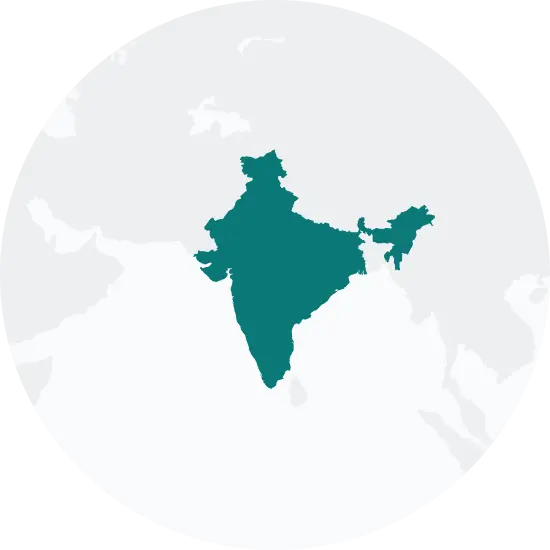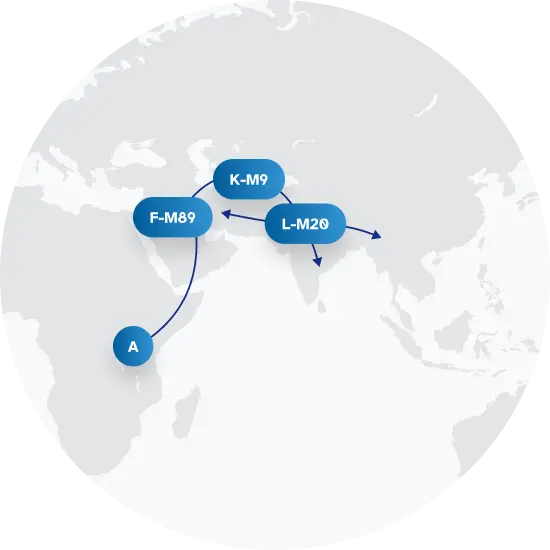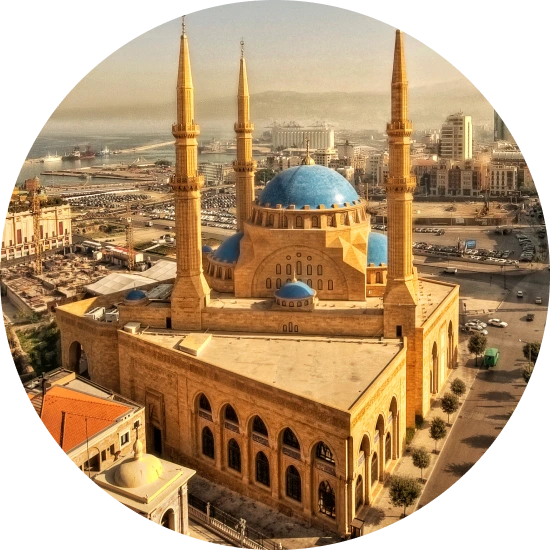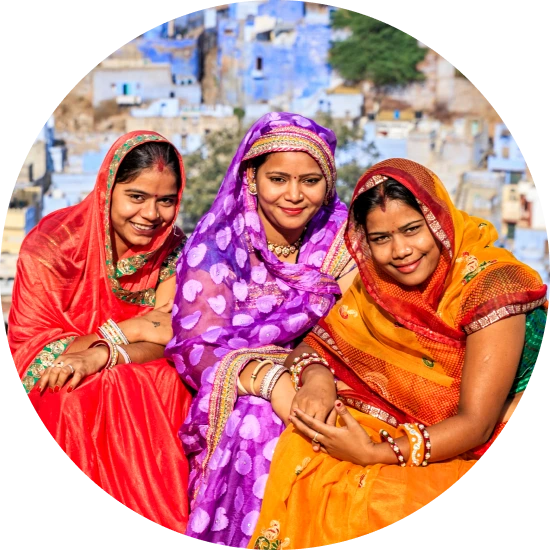Explore the Family Name Varghese
How common is the last name Varghese in the United States?
Based on data from the Decennial U.S. Census, the surname Varghese has grown significantly in popularity over the past decade. In 2000, the surname ranked 6922 in terms of prevalence but by 2010 it had risen to a rank of 5010, marking an increase of 27.62%. The count of individuals bearing this surname also saw a substantial rise from 4472 in 2000 to 7013 in 2010, indicating a growth rate of 56.82%. Furthermore, the proportion of individuals with the surname Varghese per 100k increased by 43.37% during this period.
| 2000 | 2010 | Change | |
|---|---|---|---|
| Rank | #6,922 | #5,010 | 27.62% |
| Count | 4,472 | 7,013 | 56.82% |
| Proportion per 100k | 1.66 | 2.38 | 43.37% |
Race and Ethnicity of people with the last name Varghese
The Decennial U.S. Census also sheds light on the ethnic identity associated with the surname Varghese. The vast majority, 95.38% in 2010 up from 92.91% in 2000, identify as Asian/Pacific Islander. Those identifying as two or more races decreased significantly, from 4.34% in 2000 to just 1.48% in 2010. Meanwhile, the percentage of individuals identifying as White remained relatively stable at just under 2%. Interestingly, there was an emergence of Hispanic and Black ethnicities associated with the surname between 2000 and 2010, while the American Indian and Alaskan Native category saw a slight increase from 0.45% to 0.46%.
| 2000 | 2010 | Change | |
|---|---|---|---|
| Asian/Pacific Islander | 92.91% | 95.38% | 2.66% |
| White | 1.97% | 1.95% | -1.02% |
| Two or More Races | 4.34% | 1.48% | -65.9% |
| Hispanic | 0% | 0.47% | 0% |
| American Indian and Alaskan Native | 0.45% | 0.46% | 2.22% |
| Black | 0% | 0.26% | 0% |
Varghese ancestry composition
23andMe computes an ancestry breakdown for each customer. People may have ancestry from just one population or they may have ancestry from several populations. The most commonly-observed ancestry found in people with the surname Varghese is Malayali Subgroup, which comprises 85.6% of all ancestry found in people with the surname. The next two most common ancestries are Southern Indian & Sri Lankan (4.2%) and British & Irish (3.8%). Additional ancestries include Northern Indian & Pakistani, French & German, Spanish & Portuguese, Nigerian, and Ghanaian, Liberian & Sierra Leonean.
Ready to learn more about your ancestry? Get the most comprehensive ancestry breakdown on the market by taking our DNA test. Shop 23andMe
| ANCESTRY BREAKDOWN | COMPOSITION |
|---|---|
| Malayali Subgroup | 85.6% |
| Southern Indian & Sri Lankan | 4.2% |
| British & Irish | 3.8% |
| Other | 6.5% |

Possible origins of the surname Varghese
Your DNA provides clues about where your recent ancestors may have lived. Having many distant relatives in the same location suggests that you may all share common ancestry there. Locations with many distant relatives can also be places where people have migrated recently, such as large cities. If a large number of individuals who share your surname have distant relatives in a specific area, it could indicate a connection between your surname and that location, stemming from either recent ancestral ties or migration.
Based on 23andMe data, people with last name Varghese have recent ancestry locations spanning a few countries, mostly in India, and the United Kingdom of Great Britain and Northern Ireland.
| RECENT ANCESTRY Location | Percentage |
|---|---|
| Kerala, India | 13.30% |
| Tamil Nadu, India | 11.10% |
| Karnataka, India | 10.00% |
| West Midlands, United Kingdom | 7.80% |
| Glasgow City, United Kingdom | 7.80% |
What Varghese haplogroups can tell you
Haplogroups are genetic population groups that share a common ancestor on either your paternal or maternal line. These paternal and maternal haplogroups shed light on your genetic ancestry and help tell the story of your family.
The top paternal haplogroup of people with the surname Varghese is L-M27, which is predominantly found among people with Central & South Asian ancestry. Haplogroup L-M27 is descended from haplogroup L-M20. Other common haplogroups include R-Y6 and Q-M346, which are predominantly found among people with Central & South Asian and East Asian & Indigenous American ancestry. Other surnames with similar common haplogroups are: Rao, Nair, Akhtar, Mathew, Hussain, Khan, Iqbal, Ahmed, Kumar, Menon.
The most common maternal haplogroups of people with Varghese surname are: M, U1a3, R5a2b4. These most commonly trace back to individuals of Central & South Asian and European ancestry.
 Paternal Haplogroup Origins L-M20
Paternal Haplogroup Origins L-M20
Your paternal lineage may be linked to many Lebanese people
Haplogroup L-M27 is represented in major religious populations within Lebanon, including both Lebanese Maronite and Muslim groups. It has been discovered that Lebanese Maronite populations are genetically distinct from Lebanese Muslim populations. This may mean that Lebanese Muslim groups are descendants of populations from the Arabian Peninsula who were involved in the Islamic expansion in the 7th century CE. On the other hand, Lebanese Maronite groups are likely descendants of western European populations involved in the Crusades during the 11th-13th centuries CE.
Your maternal lineage may be linked to the ancient people of the Indian subcontinent
While Haplogroup M is widespread throughout South and East Asia, it is more diverse on the Indian sub-continent than anywhere else in the world. The high degree of diversity of M in India is likely tied to its ancient arrival here nearly 50,000 years ago. In addition to M2, which is found throughout the subcontinent, there are dozens of haplogroups branching off of M that exist in India. These branches are often connected to specific regions, tribes, or ethnic groups. For example, haplogroup M18 is found among the Oraon peoples of eastern India and Bangladesh, while haplogroup M41 is common among the Pardhan speakers of eastern India, and haplogroup M31a can be found on the Andaman Islands, just off the southeast coast of India.

What do people with the surname Varghese have in common?
Spoiler alert: it's complicated. People with the same last name are usually no more genetically similar than a randomly sampled group of people from the same population. That said, people with the same surname are more likely to have similar ancestries than randomly sampled individuals. The reason is the tendency of people with similar cultural or geographical backgrounds to preferentially mate with one another. That's why people who share a surname may be more likely to share traits and tendencies in common than people within the general population. Check out the percentages below to see the prevalences of tastes, habits, and traits of people with your surname compared with prevalences among 23andMe users.
Preferences
Traits
Wellness

Migraine
A severe headache characterized by intense pain, sensitivity to light and sound, and often accompanied by nausea and vomiting.
"Varghese" Surname 11.6%
23andMe Users 16.4%
Are health conditions linked to the last name Varghese?
The short answer is that, if there is an association between surname and health, it's usually more about your ancestry than your name. Individuals with a given surname are no more genetically similar than the general population but often have similar ancestries. The populations of people associated with those shared ancestries often have sets of genetic variations, also known as alleles, in common. Some of those alleles are associated with a greater likelihood of developing certain diseases.
Disease variant frequency by ancestry
Disease allele frequencies in populations associated with the surname Varghese are shown below. Important Note: not everyone with a disease allele will develop these health condition





